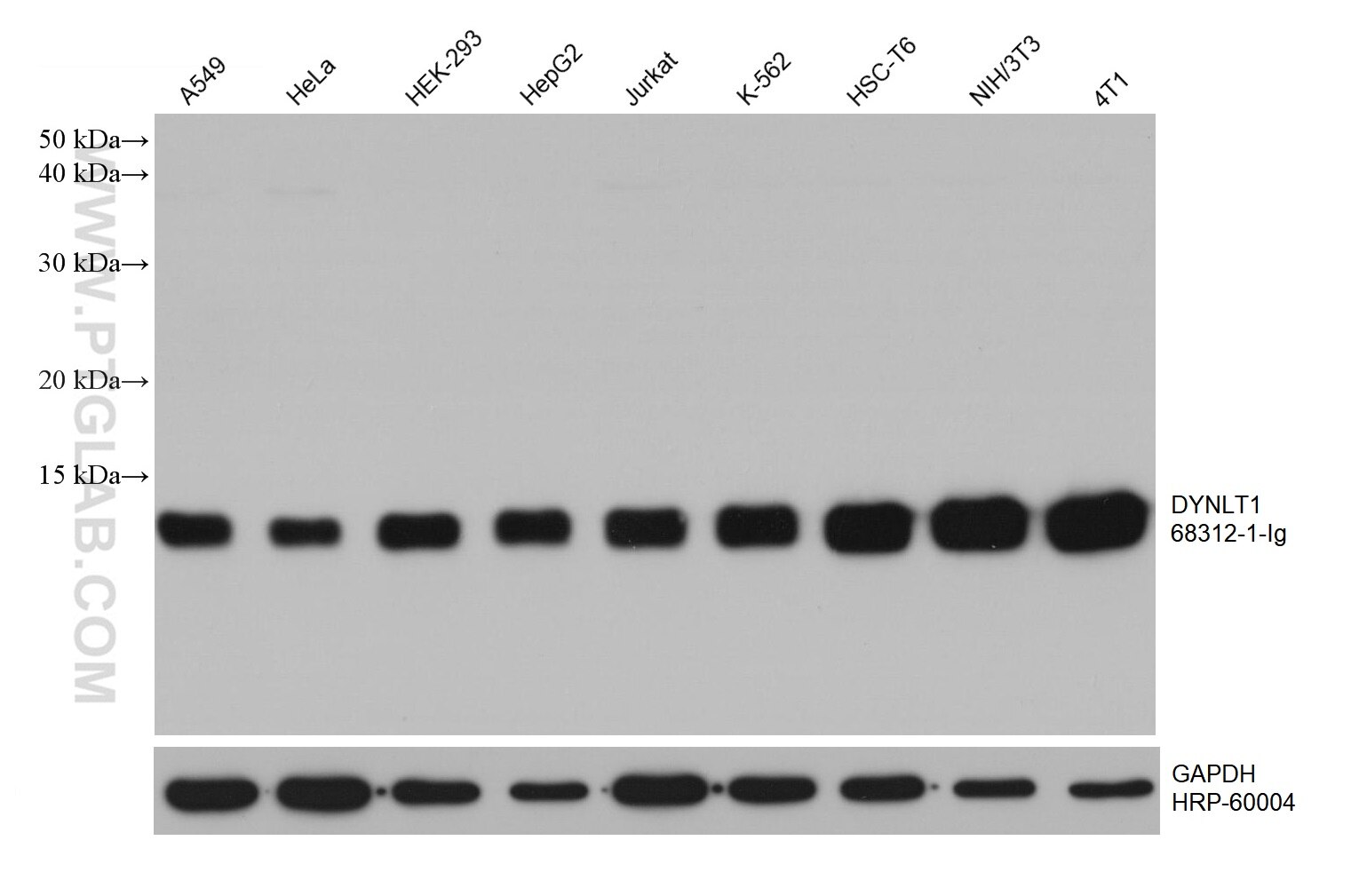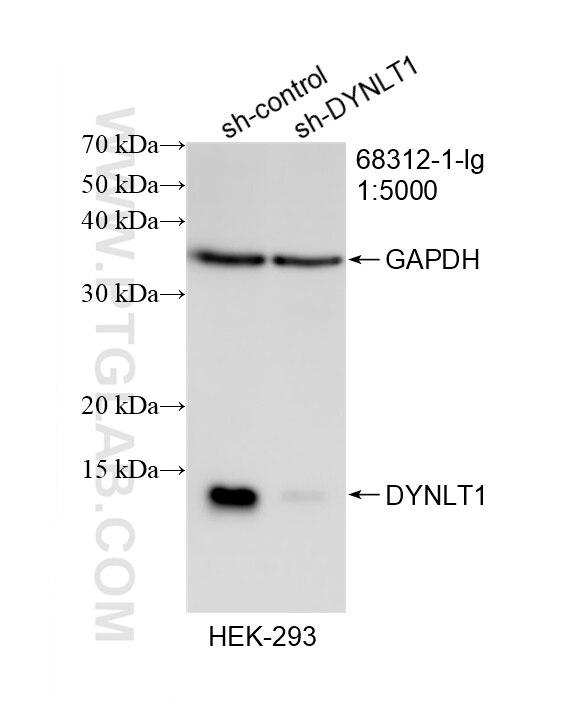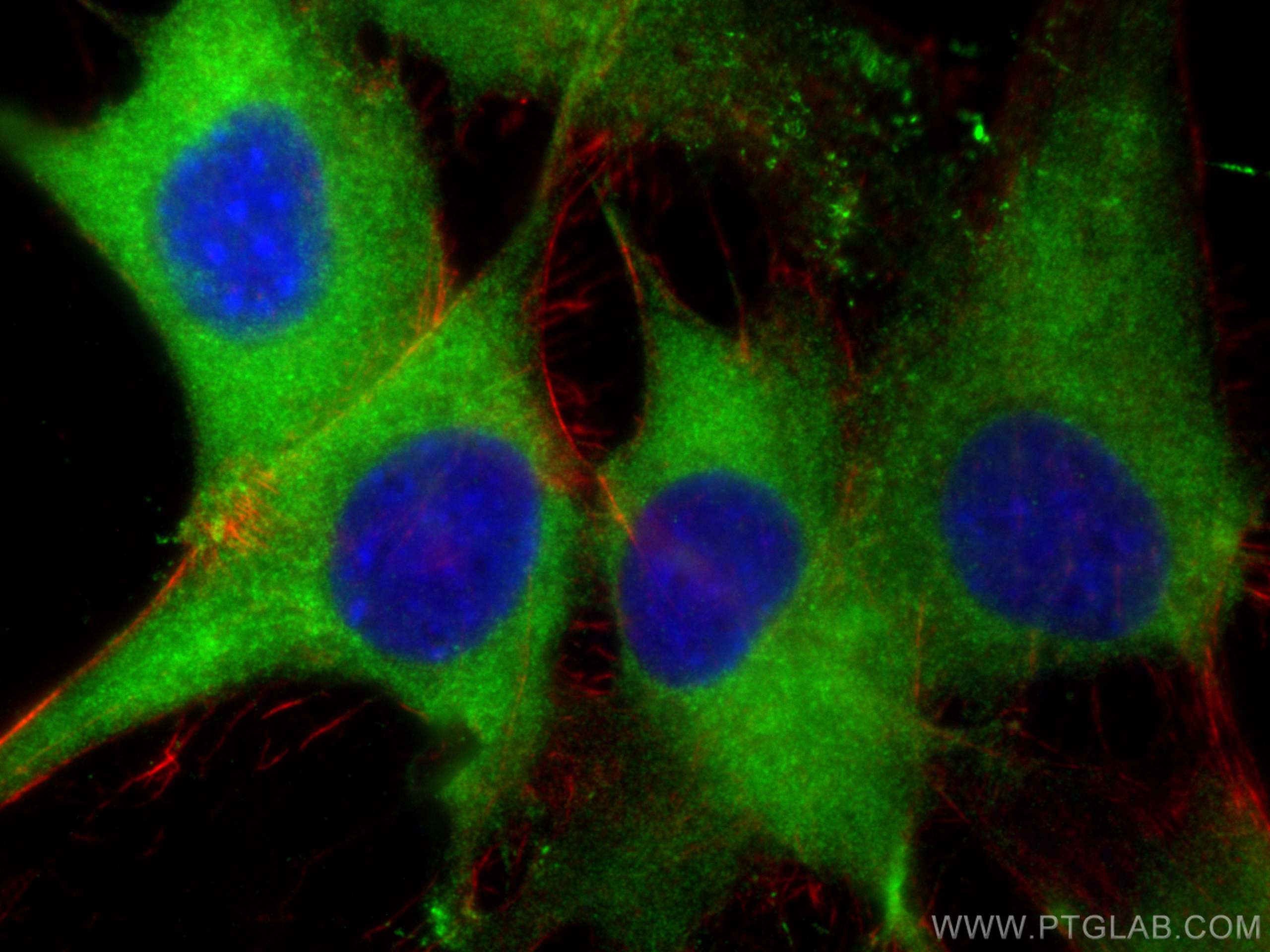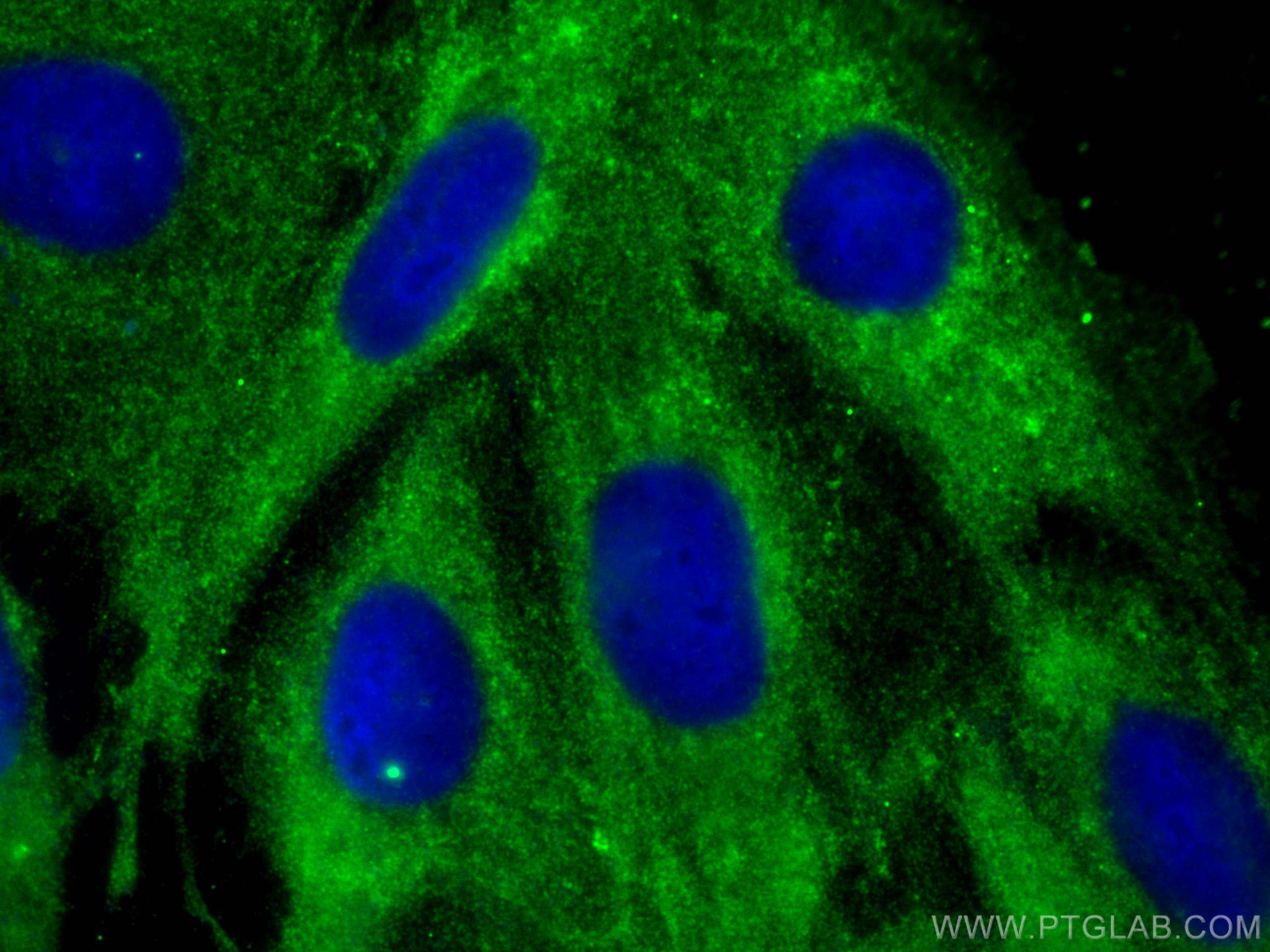Tested Applications
| Positive WB detected in | A549 cells, HEK-293 cells, HeLa cells, HepG2 cells, Jurkat cells, K-562 cells, HSC-T6 cells, NIH/3T3 cells, 4T1 cells |
| Positive IF/ICC detected in | H9C2 cells, C2C12 cells |
Recommended dilution
| Application | Dilution |
|---|---|
| Western Blot (WB) | WB : 1:5000-1:50000 |
| Immunofluorescence (IF)/ICC | IF/ICC : 1:400-1:1600 |
| It is recommended that this reagent should be titrated in each testing system to obtain optimal results. | |
| Sample-dependent, Check data in validation data gallery. | |
Product Information
68312-1-Ig targets DYNLT1 in WB, IF/ICC, ELISA applications and shows reactivity with human, mouse, rat samples.
| Tested Reactivity | human, mouse, rat |
| Host / Isotype | Mouse / IgG2a |
| Class | Monoclonal |
| Type | Antibody |
| Immunogen |
CatNo: Ag33072 Product name: Recombinant human DYNLT1 protein Source: e coli.-derived, PET28a Tag: 6*His Domain: 1-113 aa of BC029412 Sequence: MEDYQAAEETAFVVDEVSNIVKEAIESAIGGNAYQHSKVNQWTTNVVEQTLSQLTKLGKPFKYIVTCVIMQKNGAGLHTASSCFWDSSTDGSCTVRWENKTMYCIVSAFGLSI Predict reactive species |
| Full Name | dynein, light chain, Tctex-type 1 |
| Calculated Molecular Weight | 113 aa, 12 kDa |
| Observed Molecular Weight | 12 kDa |
| GenBank Accession Number | BC029412 |
| Gene Symbol | DYNLT1 |
| Gene ID (NCBI) | 6993 |
| RRID | AB_2935390 |
| Conjugate | Unconjugated |
| Form | Liquid |
| Purification Method | Protein A purification |
| UNIPROT ID | P63172 |
| Storage Buffer | PBS with 0.02% sodium azide and 50% glycerol, pH 7.3. |
| Storage Conditions | Store at -20°C. Stable for one year after shipment. Aliquoting is unnecessary for -20oC storage. 20ul sizes contain 0.1% BSA. |
Background Information
DYNLT (or Tctex-1) was originally described as a light chain component of the dynein motor complex. Tctex-1 also has several dynein-independent functions, including roles in G protein signaling activation and neuronal growth. Tctex-1 is selectively enriched in proliferating neural progenitors of both embryonic and adult brains. Genetic knockdown of Tctex-1 in radial precursors promoted neurogenesis, indicating its implication in regulation of cortical neurogenesis. (PMID: 19448628)
Protocols
| Product Specific Protocols | |
|---|---|
| IF protocol for DYNLT1 antibody 68312-1-Ig | Download protocol |
| WB protocol for DYNLT1 antibody 68312-1-Ig | Download protocol |
| Standard Protocols | |
|---|---|
| Click here to view our Standard Protocols |










